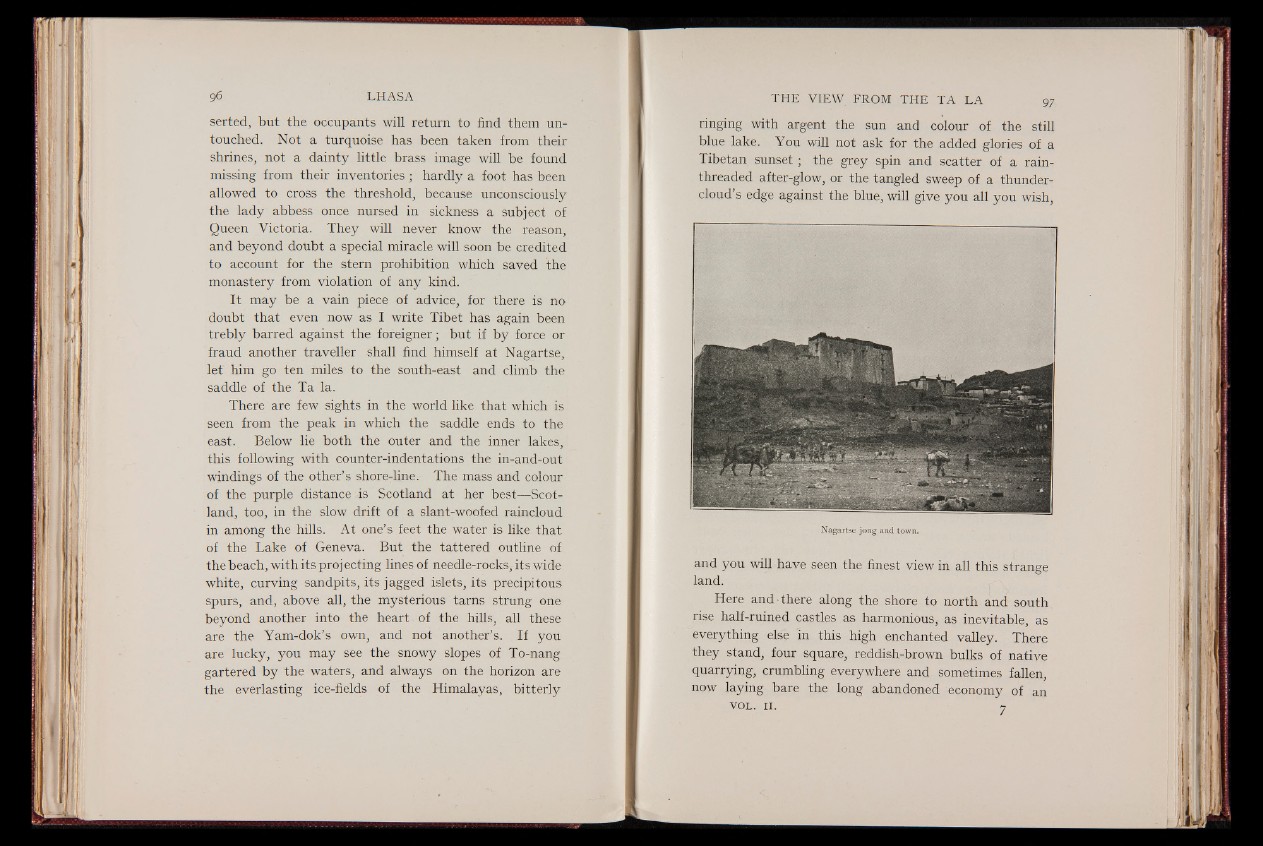
serted, but the occupants will return to find them untouched.
Not a turquoise has been taken from their
shrines, not a dainty little brass image will be found
missing from their inventories ; hardly a foot has been
allowed to cross the threshold, because unconsciously
the lady abbess once nursed in sickness a subject of
Queen Victoria. They will never know the reason,
and beyond doubt a special miracle will soon be credited
to account for the stern prohibition which saved the
monastery from violation of any kind.
It may be a vain piece of advice, for there is no
doubt that even now as I write Tibet has again been
trebly barred against the foreigner; but if by force or
fraud another traveller shall find himself at Nagartse,
let him go ten miles to the south-east and climb the
saddle of the Ta la.
There are few sights in the world like that which is
seen from the peak in which the saddle ends to the
east. Below lie both the outer and the inner lakes,
this following with counter-indentations the in-and-out
windings of the other’s shore-line. The mass and colour
of the purple distance is Scotland at her best— Scotland,
too, in the slow drift of a slant-woofed raincloud
in among the hills. At one’s feet the water is like that
of the Lake of Geneva. But the tattered outline of
the beach, with its projecting lines of needle-rocks, its wide
white, curving sandpits, its jagged islets, its precipitous
spurs, and, above all, the mysterious tarns strung one
beyond another into the heart of the hills, all these
are the Yam-dok’s own, and not another’s. If you
are lucky, you may see the snowy slopes of To-nang
gartered by the waters, and always on the horizon are
the everlasting ice-fields of the Himalayas, bitterly
ringing with argent the sun and colour of the still
blue lake. You will not ask for the added glories of a
Tibetan sunset; the grey spin and scatter of a rain-
threaded after-glow, or the tangled sweep of a thundercloud’s
edge against the blue, will give you all you wish,
Nagartse jong and town.
and you will have seen the finest view in all this strange
land.
Here and there along the shore to north and south
rise half-ruined castles as harmonious, as inevitable, as
everything else in this high enchanted valley. There
they stand, four square, reddish-brown bulks of native
quarrying, crumbling everywhere and sometimes fallen,
now laying bare the long abandoned economy of an
VOL. II. 7